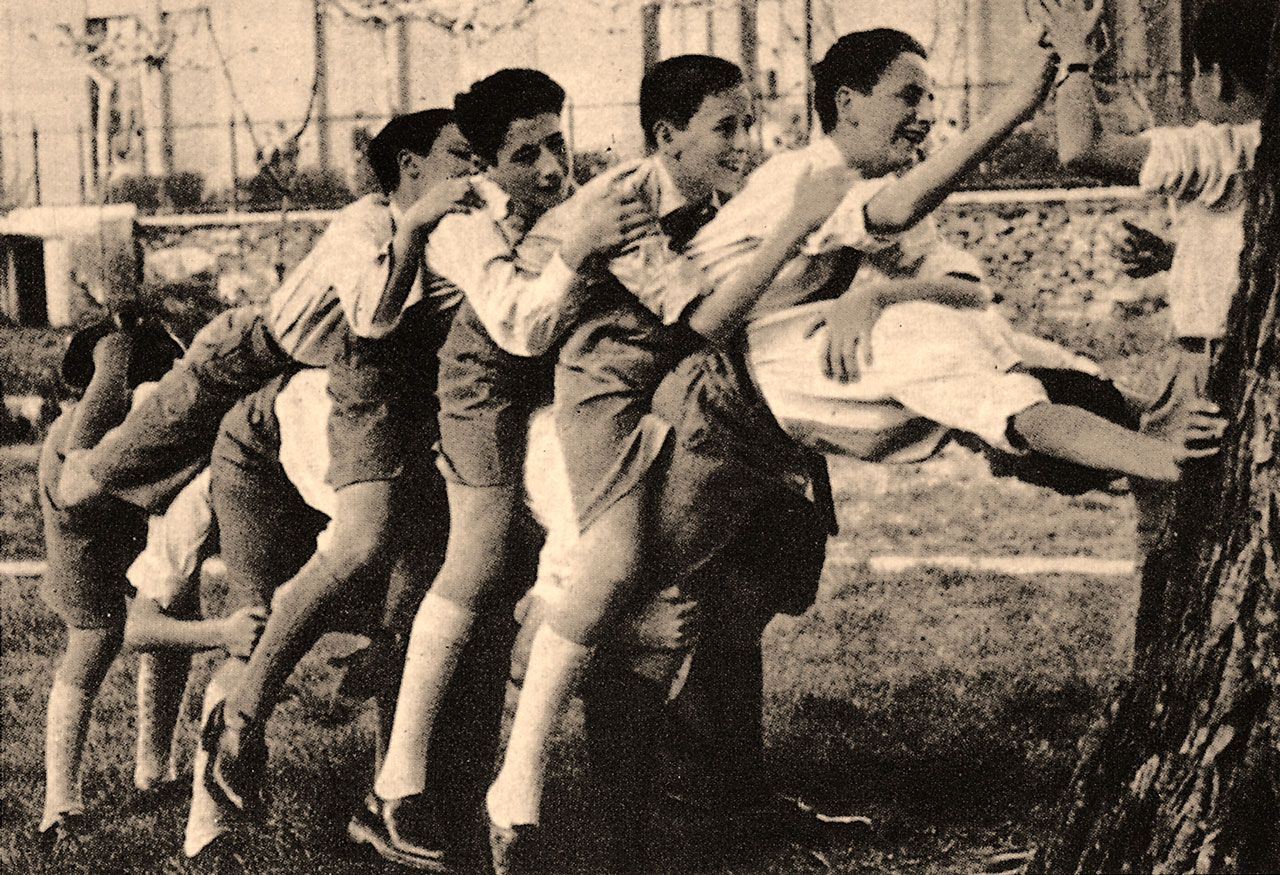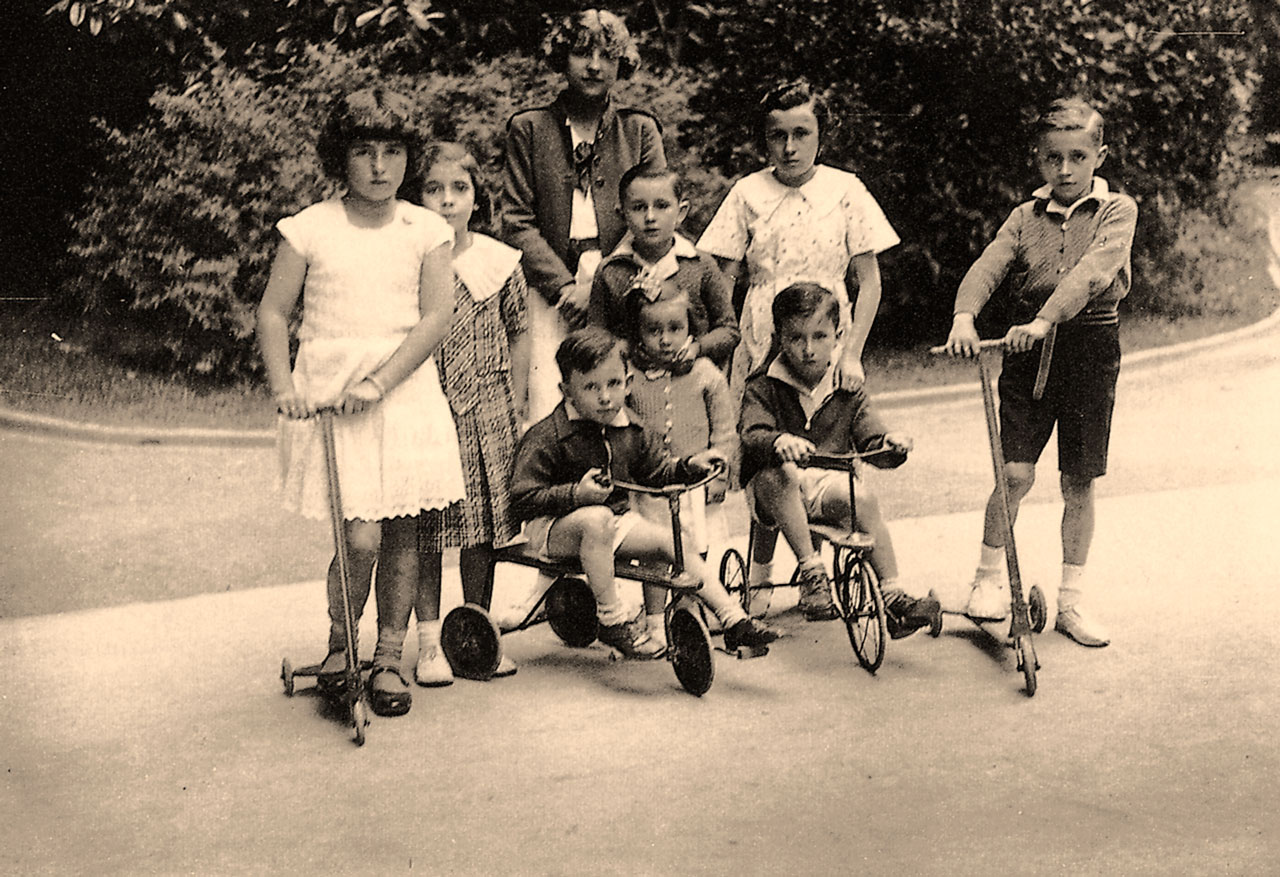Diferencia entre revisiones de «Juegos infantiles en vasconia/en»
De Atlas Etnográfico de Vasconia
(Página creada con «====[/atlas/juegos/Beasaingo-haurrak-Egozkuen-1967.jpg|Children from Beasain in Egozkuen (N), 1967. Source: José Zufiaurre, Etniker Euskalerria Groups.|''Txori-ikasten'' <...») |
(Página creada con «====[/atlas/juegos/Lanzando-la-trompa-Getxo-1993.jpg|Playing with spinning tops. Getxo (B), 1993. Source: Jon Elorriaga, Etniker Euskalerria Groups.|Changes in the adult wo...») |
||
| Línea 31: | Línea 31: | ||
====[/atlas/juegos/Beasaingo-haurrak-Egozkuen-1967.jpg|Children from Beasain in Egozkuen (N), 1967. Source: José Zufiaurre, Etniker Euskalerria Groups.|''Txori-ikasten'' <br />They played looking for birds’ nests and thus learnt about their habits, their songs, the way the nests were built…||]==== | ====[/atlas/juegos/Beasaingo-haurrak-Egozkuen-1967.jpg|Children from Beasain in Egozkuen (N), 1967. Source: José Zufiaurre, Etniker Euskalerria Groups.|''Txori-ikasten'' <br />They played looking for birds’ nests and thus learnt about their habits, their songs, the way the nests were built…||]==== | ||
| − | ====[/atlas/juegos/Lanzando-la-trompa-Getxo-1993.jpg| | + | ====[/atlas/juegos/Lanzando-la-trompa-Getxo-1993.jpg|Playing with spinning tops. Getxo (B), 1993. Source: Jon Elorriaga, Etniker Euskalerria Groups.|Changes in the adult world are also necessarily reflected in the children’s world. It should not be forgotten that those changes also affect the world of beliefs, convictions and rites underlying many traditional games; many of which would be stripped of meaning, some would fall into disuse, others would persist and would adapt to the new circumstances.||]==== |
====[/atlas/juegos/Jugando-al-corro-Larraul.jpg|Jugando al corro. Larraul (G). Fuente: Antxon Aguirre, Grupos Etniker Euskalerria.|Korruka Al corro de las patatas, naranjas y limones, como comen los señores, alupé, alupé, sentadito me quedé.||]==== | ====[/atlas/juegos/Jugando-al-corro-Larraul.jpg|Jugando al corro. Larraul (G). Fuente: Antxon Aguirre, Grupos Etniker Euskalerria.|Korruka Al corro de las patatas, naranjas y limones, como comen los señores, alupé, alupé, sentadito me quedé.||]==== | ||
Revisión del 08:35 25 feb 2020

Children’s Games in the Basque Country
Haurrak, haurlan. ‘Play is the work of childhood’. On traditional games, the world of children and their ability to emulate adult behaviour.
Playing knucklebones. Zeanuri (B), 1993. Source: Ander Manterola, Etniker Euskalerria Groups.



_1993.png/1200px-4.9_A_la_silla_de_la_reina._Carranza_(B)_1993.png)
_1975.jpg/800px-4.123_Zinbili-zanbala._Donostia_(G)_1975.jpg)
.png/800px-4.189_Haciendo_figuras_con_hilos._Carranza_(B).png)
_1982.png/900px-4.280_Goitibera._Zeanuri_(B)_1982.png)
